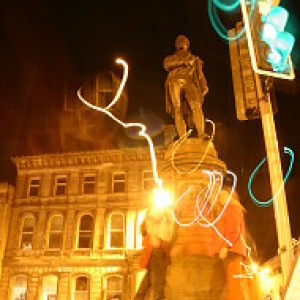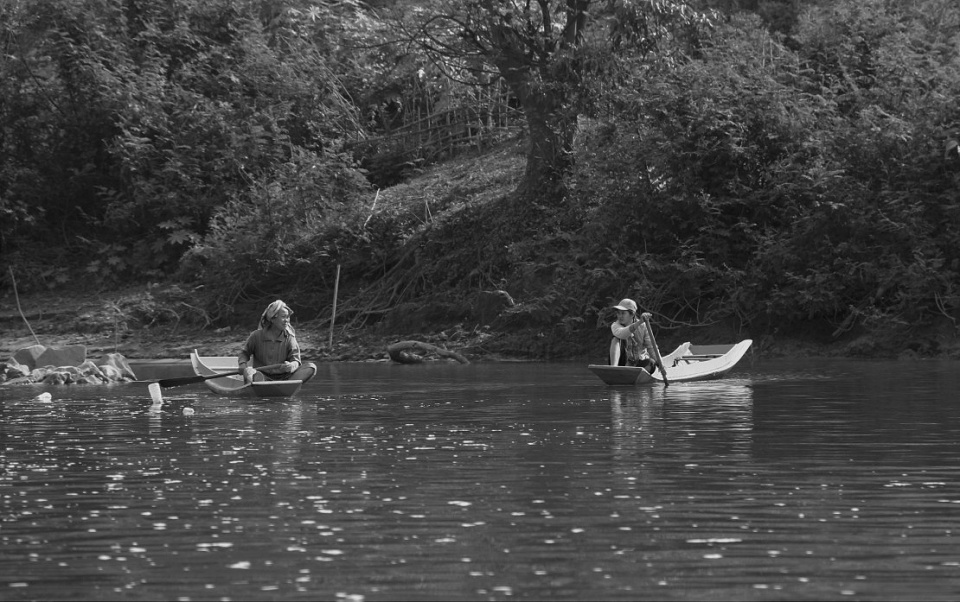Chatting
Awake early, listening to cocks crow and engines navigate the river below us. The early morning air creeping chill into the room, a sense of impending loss in the guise of departure. Sitting in the rainbow, morning coffee, time, another farewell to the owner, bags gathered and down to the water, awaiting the boat.
Today two boats, and a third, for myself alone, laden with the hoard of memories which I carry close to me. The engine starts, we move into the current, downstream, onward into the uncertainty of the future. How long can this place remain? Yesterday I was shown a few photos of the river a month or so ago, when the dam upstream had shut off the water, the Nam Ou a mere trickle between the risen rocks of the stony river bed.
A tractor, not a long nose but one of the more modern mid engined type that seem to be replacing them, more practical maybe but less aesthetic, carries cement up a slope, workers gathering and bagging stone, passing, passing.
We continue and, then the hull of the boat scrapes upon the river bed, voices sound in worry and shock. On the shoreline a van following us, the road, dust billowing from the untreated surface, clouding red the morning air. The water level's too low, the pilot turning towards deeper water, we continue, passing the spillage of life from unseen and unmet hamlets along the shoreline until the bridge at Nong Khiaw appears, hazily spanning the river, solidifying.
A tuk tuk to the mini bus station, the 1100 full, tickets for the 1330, time to rest, to grab some food before the next journey down to Luang Praban.
The road's been improved, mostly, the drive through the heat, village names recognised from maps, unvisited, brief, and then we're following the river again, but this time it's different, something's changed.
At a toilet stop we swap seats, I move to the window, watch the landscape pass, the families gathered roadside, the signs of development in embryo, building materials gathered, paths being cleared, trees standing 20m beyond the shoreline.
That's it. Finally I get it, the banks have been flooded. Now intent, focussed, I gaze out upon small islands which would have been hillocks last time I passed, the water reaching up to the small embankment upon which the road is set. Crossing small streams, also bloated in this dry season, we turn a bend and, there, I see the rooftops of flooded structures rising above the water, villages drowned, the land changed. A few km later I see the dam, "PowerChina" ragged and bleached images upon stained and torn canvas strewn along its walls; scenes taken from folklore, the idealism of landscapes and rural life, the very things that this sequence of dams destroys, relegating them into memory, into stories told to coming generations of the impossible past. For, maybe, I think to myself, in this place, whoever controls the river controls the land. Once again I feel a shudder.
Beyond the dam the flood becomes a trickle, shrubbery strewn, small pools of water linger between the rocks where the river used to be; deserted buildings in this most modern desert until other tributaries arrive and the river resumes, fishermen on boats, back into the familiar.
And then we're caught in traffic. The bus stops, the driver attempting to extort 10000 kip per head to stop in the city, is met with a unanimous vote of no and passes through, refusing to stop, drops us at the southern bus station and we disembark, once more into the dust in search of a room.


Comments
Sign in or get an account to comment.


